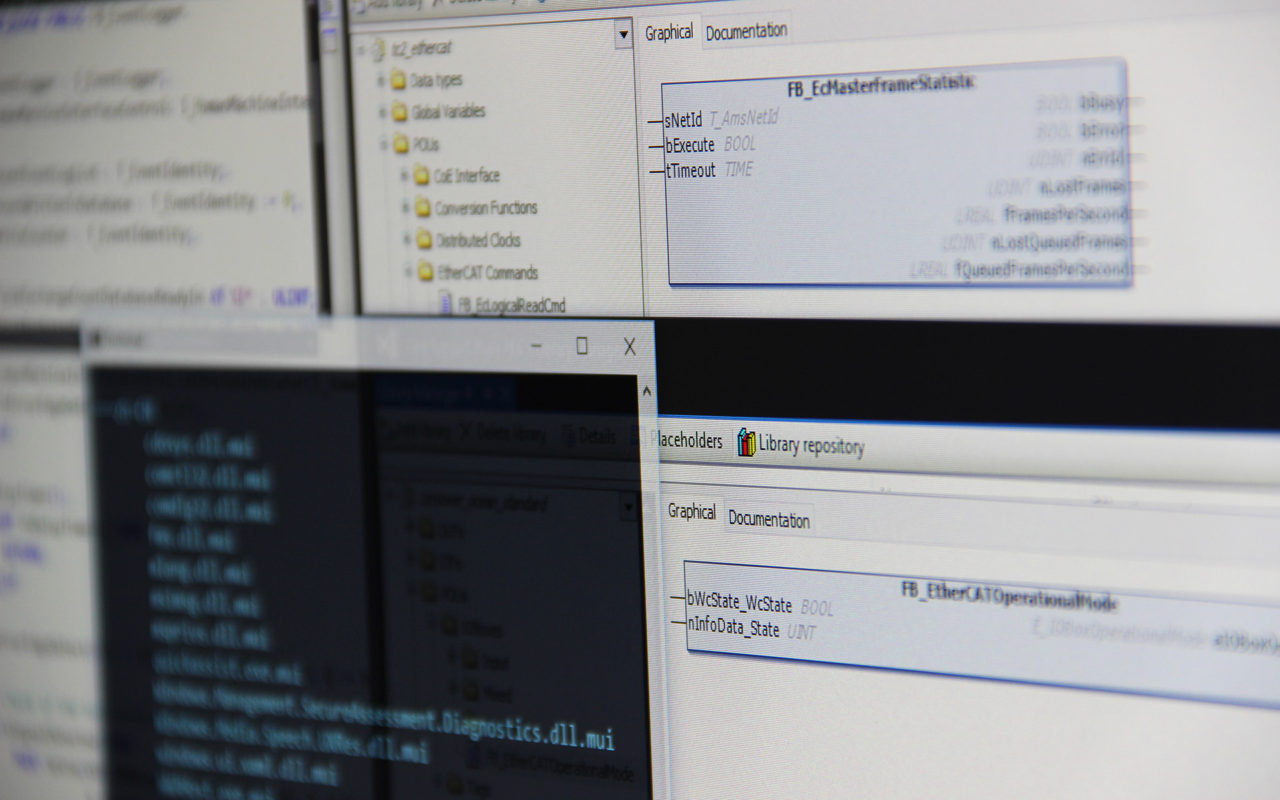 In my earlier posts I’ve written about development of TwinCAT software using test driven development (TDD), by writing unit tests. One of the advantages by adhering to the process of TDD is that you mostly will end up with function blocks (FBs) which have limited but well defined responsibility. Eventually you will however have FBs that are dependent on other function blocks. These could be FBs that are your own, or part of some 3rd party library, for example a Beckhoff library. Further, what if this external FB relies on some other functionality such as external communication using sockets that we have no control of? The external FBs should already be tested, we’re only interested in making sure our unit tests test our code! What do we do? A solution to this is to mock the external functionality and use dependency injection.
In my earlier posts I’ve written about development of TwinCAT software using test driven development (TDD), by writing unit tests. One of the advantages by adhering to the process of TDD is that you mostly will end up with function blocks (FBs) which have limited but well defined responsibility. Eventually you will however have FBs that are dependent on other function blocks. These could be FBs that are your own, or part of some 3rd party library, for example a Beckhoff library. Further, what if this external FB relies on some other functionality such as external communication using sockets that we have no control of? The external FBs should already be tested, we’re only interested in making sure our unit tests test our code! What do we do? A solution to this is to mock the external functionality and use dependency injection.
The wonders of ANY
While doing software development in TwinCAT, I have always been missing some sort of generic data type/container, to have some level of conformance to generic programming. “Generic programming… what’s that?”, you may ask. I like Ralf Hinze’s description of generic programming:
A generic program is one that the programmer writes once, but which works over many different data types.
I’ve been using generics in Ada and templates in C++, and many other languages have similar concepts. Why was there no such thing available in the world of TwinCAT/IEC 61131-3? For a long time there was a link to a type “ANY” in their data types section of TwinCAT3, but the only information available on the website was that the “ANY” type was not yet available. By coincidence I revisited their web page to check it out, and now a description is available! I think the documentation has done a good job describing the possibilities with the ANY-type, but I wanted to elaborate with this a little further.
OSCAT basic library in TwinCAT
 If you’ve done development in TwinCAT for some time, you’ve most likely come across at least one of the OSCAT libraries. These are open source libraries developed in accordance to the IEC61131-3 standard. They provide a total of three different libraries; OSCAT-Basic, OSCAT-Building and OSCAT-Network. I’ve so far only used the OSCAT-Basic library, which provides function blocks and functions for engineering, mathematics, string handling, time/date and much more. There is only a small problem with using the OSCAT-Basic library in TwinCAT – there is a broken reference in it! What follows is a guide on how you can fix this so that you can fully utilize this library in TwinCAT.
If you’ve done development in TwinCAT for some time, you’ve most likely come across at least one of the OSCAT libraries. These are open source libraries developed in accordance to the IEC61131-3 standard. They provide a total of three different libraries; OSCAT-Basic, OSCAT-Building and OSCAT-Network. I’ve so far only used the OSCAT-Basic library, which provides function blocks and functions for engineering, mathematics, string handling, time/date and much more. There is only a small problem with using the OSCAT-Basic library in TwinCAT – there is a broken reference in it! What follows is a guide on how you can fix this so that you can fully utilize this library in TwinCAT.


